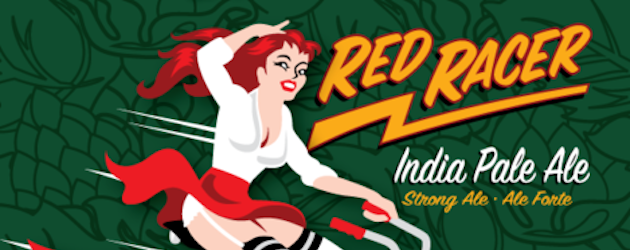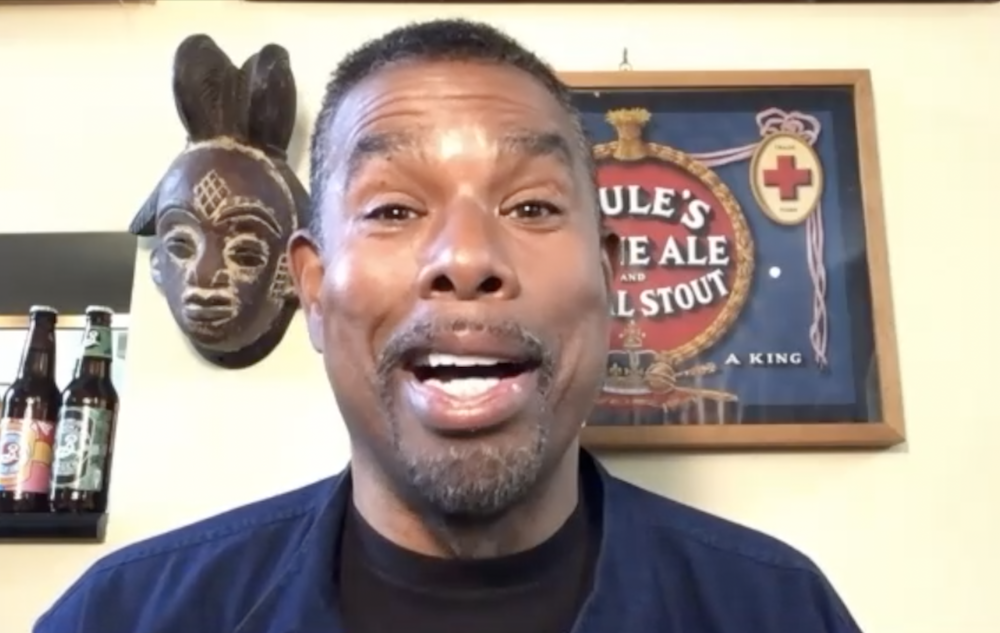by Nicholas Pashley
Funny country, Canada. And, after a little road trip across the border, I can say with some confidence: funny country, the USA.
I have long found it odd that I can go to a good beer store in Buffalo (Premier Gourmet, Consumers Beverages, Village Beer Merchant) and find excellent beers from across the United States as well as from many foreign lands, yet even a very good LCBO outlet will offer me almost nothing from the Canadian Prairies and very little from either coast or Quebec. Ontario is not alone in this quirk; most provinces find little or no shelf space for beer or wine from elsewhere in the country. An LCBO employee once told me that it’s easier for him to get a wine from Italy than one from another Canadian province. This is partly provincial protectionism, partly the weight of post-Prohibition bureaucracy.
I have written elsewhere that if you want to drink Canadian beer (as opposed to drinking Canadian, which you can do practically anywhere) you have to go to Canada. This represents an expensive travel investment, but gives the imaginative drinker exposure to our very large country and increases the likelihood of tasting the beer fresh. We don’t know if Canadian beer travels well, as it seldom gets the chance. (Locavores might argue that we should be drinking only local brews to reduce our carbon footprint. All very true, but sometimes I want nothing but a Garrison Imperial IPA, damn it.)
Even within Ontario, the probability of finding quality craft beer diminishes with your distance from Toronto, where much of our craft brewing is based. If you get as far as Sarnia, just about the only craft beer you’ll find is across the bridge in Port Huron, Michigan. Our local alcohol authorities insist that deliveries of beer be made by the breweries themselves, which is not a difficulty for the beer behemoths but is a bit hard on the little guys. And in Canada the little guys really are little, in some cases almost invisible to the naked eye. Toronto drinkers know when Durham County’s Bruce Halstead goes on holiday: his beer taps dry up.
Now, by comparison, American breweries have the advantage of a much larger market. They have ten times our population, but more important they are not subjected to our bizarre provincial boundaries. (Did you know that strictly speaking you are not legally permitted to carry a case of beer from one Canadian province to another? Funny country.) Take a company like Bell’s Brewery in Galesburg, Michigan. Bell’s makes a lot of aggressive, put-hair-on-your-chest kinds of beers, brews that are not to everyone’s taste. If Bell’s could sell their beers only to Michiganders (lovely word, that), they would have a market not quite that of Ontario. Bell’s hearty brews, however, are available in 18 American states, though not some of the really big ones like California and New York. Still, by my calculations, the states that offer Bell’s represent a total market of more than 126 million potential beer drinkers, or approaching four Canadas. That allows a brewery to expand and make some actual money. Bell’s would be even more widely available, but they’re already selling everything they make.
One of the big differences between the two countries (beyond Celsius and Fahrenheit, Rick Mercer and Rush Limbaugh, wacky politics and, oh wait…) lies in beer distribution. By law – and always remember that virtually all drinking laws in North America have their roots in Prohibition – American breweries cannot distribute their products directly to stores or bars. They must go through distributors. This gives them sales and distribution in as many other markets as they can manage. So you can find Bell’s fine ales in North but not South Dakota, Alabama but not Mississippi.
Here in Ontario, by contrast, you can find, say, Black Oak Pale Ale in any pub that founder/president/assistant grain shoveller Ken Woods succeeds in getting to and persuading to carry his beer. He can also get his beer into any branch of The Beer Store he can afford to pay his way into, as well as getting into LCBO stores he can drive to. Running a craft brewery in this country is not a get-rich scheme, even for a crafty trained accountant like Ken.
And yet things change. A recent issue of Ale Street News published a story about the failure of American craft breweries… to make enough beer! Demand for beer with flavour keeps rising, while macrobrews and imports struggle even to maintain their sales. The result is that craft breweries are finding it more difficult to supply their own local markets and are pulling their beer from distributors in other states. Rhode Island, in particular, seems to be losing beer at a dispiriting rate, so consider your travel plans wisely.
And in Canada? We have long had importers of beer, certainly here in Ontario, and only recently does it appear to have occurred to anyone to treat beer from Quebec or Nova Scotia as a foreign beer. Not surprisingly, the pioneer of importing “foreign” beers from other provinces is Ralph Morana, owner of Bar Volo on Yonge Street, evangelist for good beer, and constant thorn in the side of the LCBO and the licensing authorities. Ralph was not the first person in these parts to appreciate quality beer or to think warm thoughts about cask-conditioned ales, but it was Ralph who badgered brewers and beer drinkers into making and drinking better beer. And it was Ralph who invented Cask Days back in 2005, now an important annual event on the beer drinker’s calendar.
And it was Ralph Morana who established Keep6Imports, a distribution company that, to date, imports only Canadian beers, with a current roster that includes five excellent Quebec breweries and three from BC. Their recent shipment of Central City Red Racer IPA – the Surrey BC brewery was named Brewery of the Year in the Canadian Brewing Awards in 2010 – has sold like stink in the few LCBO outlets that stocked it (there may still be a few at the Queens Quay store).
Cass Enright, who founded the Bar Towel website in 1999, celebrated that institution’s tenth anniversary by opening a beer importing company that specializes in Maritime brews, handling beers from Garrison Brewing in Halifax and Picaroons in Fredericton. And earlier this year, beer industry stalwart Claude Lefebvre launched North American Craft, a new company devoted to the distribution of small craft brewery beers in Ontario, bringing in beers from Propeller in Halifax and Paddock Wood in Saskatoon. Of equal interest is that North American Craft is also distributing such Ontario breweries as Black Oak, Denison’s, and Stratford to a wider market within Ontario, getting these beers into parts of the province they could never service without help.
So, as American craft breweries are reluctantly shrinking their distribution, some of their Canadian counterparts are belatedly expanding theirs. It might be a little tough on the environment, but if I can drown that remorse with a bottle of Tree Hop Head IPA from Kelowna I’ll feel a bit better.
 Nicholas Pashley is the author of Notes on a Beermat and Cheers: An Intemperate History of Beer in Canada. He can be stalked on Twitter @NotesOnABeermat.
Nicholas Pashley is the author of Notes on a Beermat and Cheers: An Intemperate History of Beer in Canada. He can be stalked on Twitter @NotesOnABeermat.









I really enjoyed the read. I read the recent Ale Street News piece you mentioned, and you brought to light some of my frustrations around getting some of the fine beer produced in Quebec more available here. I got a 4-pack of Noire de Chambly in Columbus, Ohio but I can’t get it here. Go figure.
Nicely put my friend! It’s good to hear that local brewers are getting their chance once and for all! I have heard again and again from brewers just how difficult distribution is.
If you have more beer related articles I would love to read them. I am going to post a link of this one into my facebook group THE BEER EXPERIMENT. Feel free to join and spread the gospel! 🙂